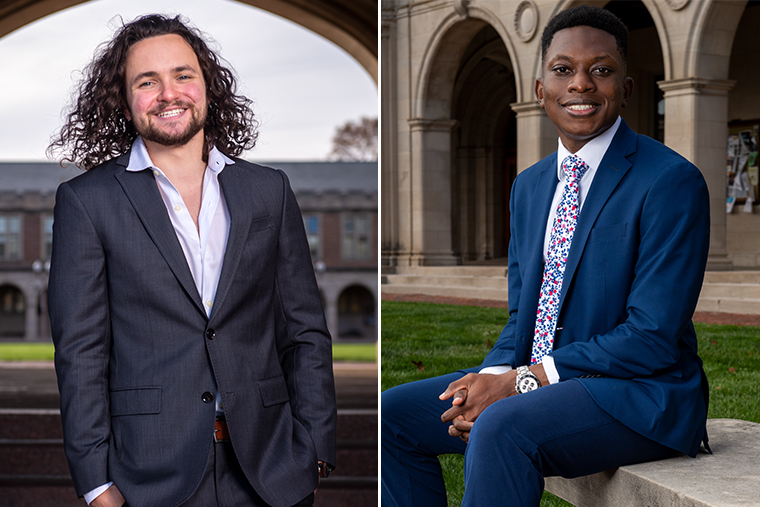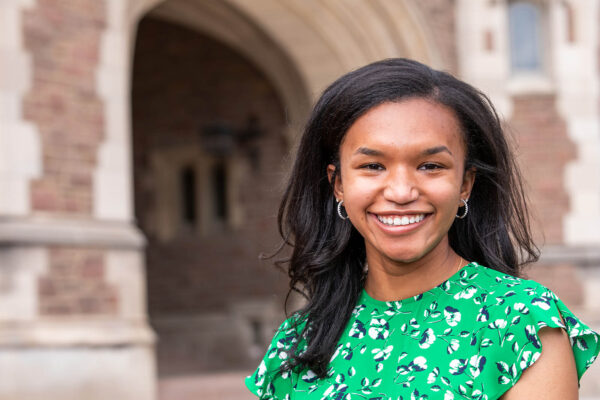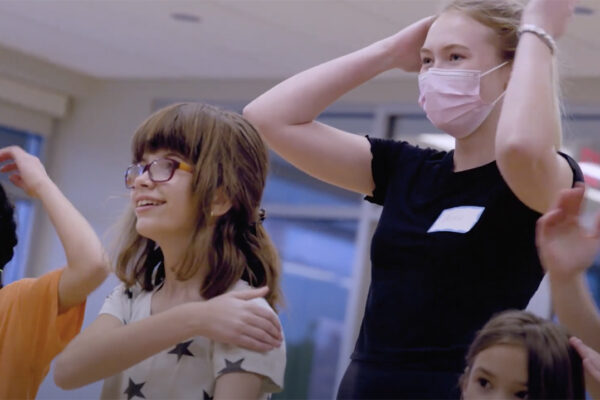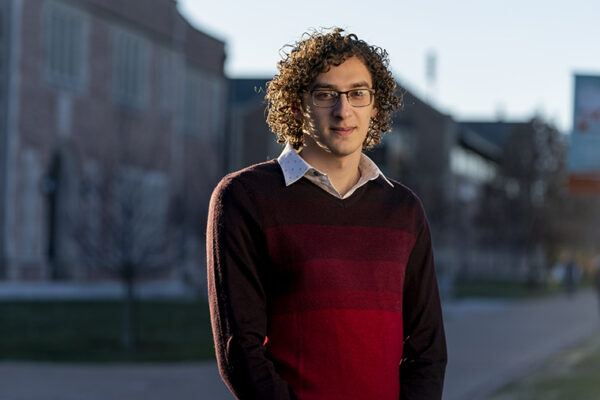Seniors Sam Norwitz and Ephraim Oyetunji at Washington University in St. Louis were finalists for the Rhodes Scholarship, one of the world’s most prestigious academic honors, to study at the University of Oxford in England.
Norwitz and Oyetunji, both majoring in the neuroscience track of biology in Arts & Sciences, are striving to improve the health and well-being of populations often overlooked by modern medicine. Norwitz, founder of the university’s Special Olympics chapter, is committed to serving children with special needs. Meanwhile, Oyetunji, president of the Minority Association of Premedical Students, wants to develop culturally competent psychiatric interventions.
“I am incredibly proud of Ephraim and Sam and all that they have already achieved through their extraordinary outreach, advocacy and research,” Chancellor Andrew D. Martin said. “They are exceptional change makers who are making a difference in the world.”
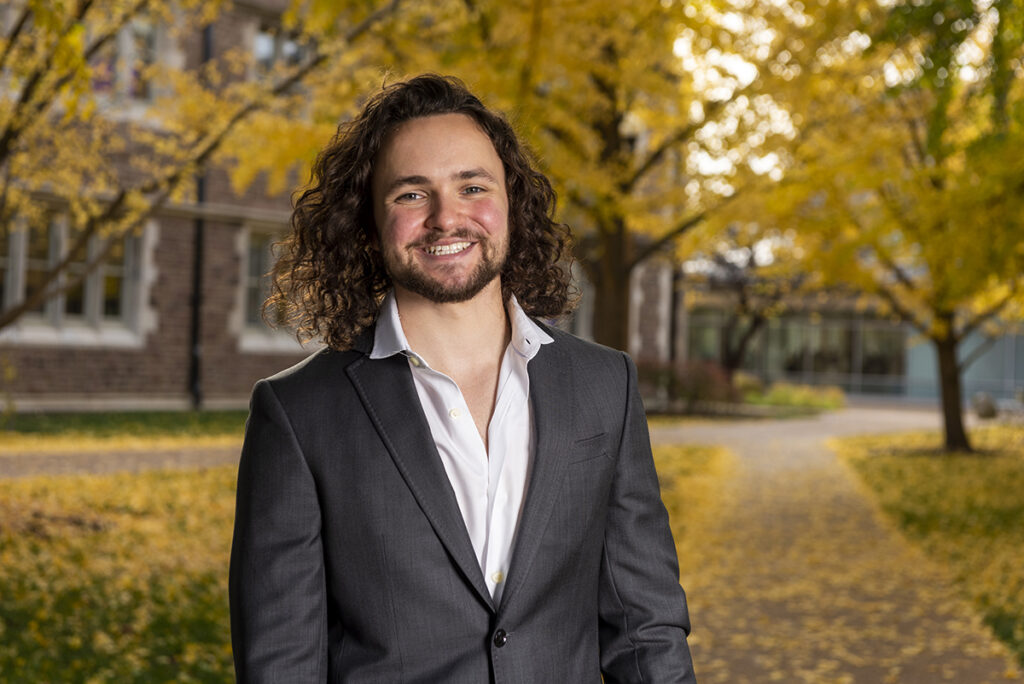
‘Quiet determination and collaboration that will help to change the world’
As an elite high school soccer player in Newton, Mass., Norwitz was poised to play for a top college team when a cycling accident set him on a different path. During his recovery, Norwitz volunteered to coach the Milton Bulldogs, a Special Olympics soccer team outside of Boston. That experience sparked a love for children and a quest to understand how the brain works. He founded Washington University Special Olympics and serves as president of Synapse Neuroscience Club which, among other programs, provides neuro-rehabilitation sports programs for children with cerebral palsy.
“I’ve met a lot of ‘special kids,’” said Norwitz, who is minoring in children’s studies in Arts & Sciences. “According to ‘normal’ standards, they’re limited. But remember, I’m a neuroscientist at heart. I don’t believe the brain is a fixed machine that simply becomes ‘dysfunctional’ with missing or broken pieces. The brain is a beautiful plastic network, which views ‘missing pieces’ as an opportunity to grow and adapt in miraculous ways. I’m not trying to fix the machine, but rather, to learn about what special adaptations nature makes.”
Norwitz still hopes to attend Oxford and conduct research in the lab of Rebeccah Slater, a leading expert in pain perception in infants at Oxford. Specifically, Norwitz wants to investigate how neuroinflammation in fetuses with Down syndrome could lead to altered pain sensitivity and cognitive impairments later in life.
“Pain provides a way for us to study the Down syndrome brain in a novel way that has not been done before,” Norwitz explained.
Norwitz also would like to join KEEN Oxford, which offers inclusive sports and activities for people with disabilities and special needs. Norwitz, a talented musician, wants to introduce music therapy to the program.
“Working with children puts the research in context. Without that I’m just working in a lab,” Norwitz said.
Deanna Barch, the Gregory B. Couch Professor of Psychiatry at the School of Medicine and professor of psychological and brain sciences and vice dean of research in Arts & Sciences, said she is thrilled that Norwitz achieved this honor. Norwitz has conducted research with Barch throughout his years at Washington University at the Cognitive Control and Psychopathology Laboratory and the Human Connectome Project.
“On every one of the projects on which I have worked with Sam, he has gone above and beyond, showing the type of drive, intellectual curiosity and creativity that you simply cannot teach people — they have to have it on their own,” Barch wrote in her letter of recommendation. “I am quite frankly in awe of him. He is not braggy or showy, though he certainly would have the right to be given all that he has already accomplished, but leads with that quiet determination and collaboration that will help to change the world.”
‘A new kind of neuroscientist who chooses problems based on their potential to benefit the disenfranchised’
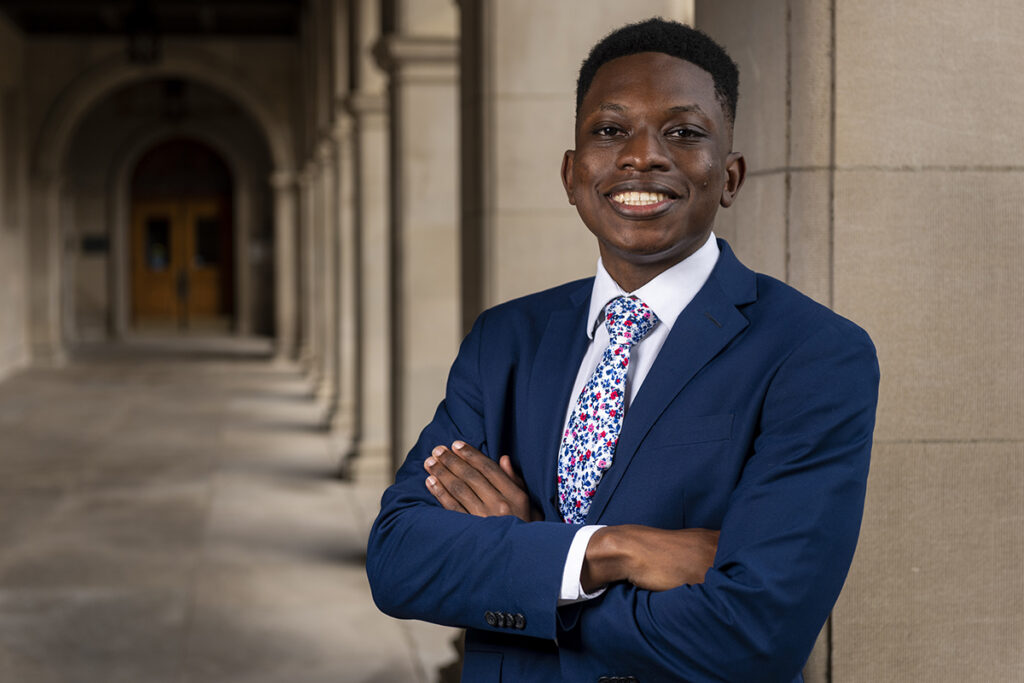
Two experiences at Washington University changed Oyetunji’s understanding of what it means to practice medicine. The first was a seminar about the former Homer G. Phillips Hospital, the only public hospital for Black patients in St. Louis.
“We heard straight from the Black caregivers who cared for Black residents,” said Oyetunji, who is from Miramar, Fla. “That was my first window into what it means to receive care from people who share the same cultural background as you.”
Then, during the COVID-19 pandemic, Oyetunji worked as a Faith in the Vaccine Ambassador. He met African immigrants wary of the vaccine — not necessarily because they doubted the science, but because no one had answered their questions in their native language. So Oyetunji collaborated with local St. Louis organizations to create flyers in Swahili, Kinyarwanda and Somali.
“I realized that being honest rather than dogmatic helped them remain open to what I had to share. I learned that by directly speaking with people, sharing laughs and communing, trust grows and health equity can be achieved,” said Oyetunji, who is minoring in African and African American studies in Arts & Sciences. “Now, I hope to spearhead public health efforts and foster relationships between medical centers and marginalized communities so no one is left behind during the next crisis.”
Oyetunji is the latest in a long line of Ervin Scholars to be considered for the Rhodes Scholarship. Kennedy Young was a finalist last year. Ervins Camille Borders and Jasmine Brown were named Rhodes scholars in 2017.
Oyetunji also is an accomplished researcher, studying Alzheimer’s in the lab of Timothy M. Miller, MD, the David Clayson Professor of Neurology at the School of Medicine and co-director of the ALS Center.
In addition, Oyetunji is an ENDURE Scholar & Research Fellow and a participant in the MARC U-STAR program. Earlier this year, Oyetunji received the distinguished Barry Goldwater Scholarship. After graduation, Oyetunji plans to attend medical school and pursue a career that combines translational research, mentorship and both individual and community engagement.
His adviser, Erik Herzog, the Viktor Hamburger Distinguished Professor in Arts & Sciences, says Oyetunji stands out as a natural leader.
“I am impressed that he balances the heavy demands of the neuroscience major, his research and his service to the community while maintaining a perfect GPA,” Herzog wrote in his recommendation. “He is remarkably dedicated to being a new kind of neuroscientist who chooses problems based on their potential to benefit the disenfranchised.”
